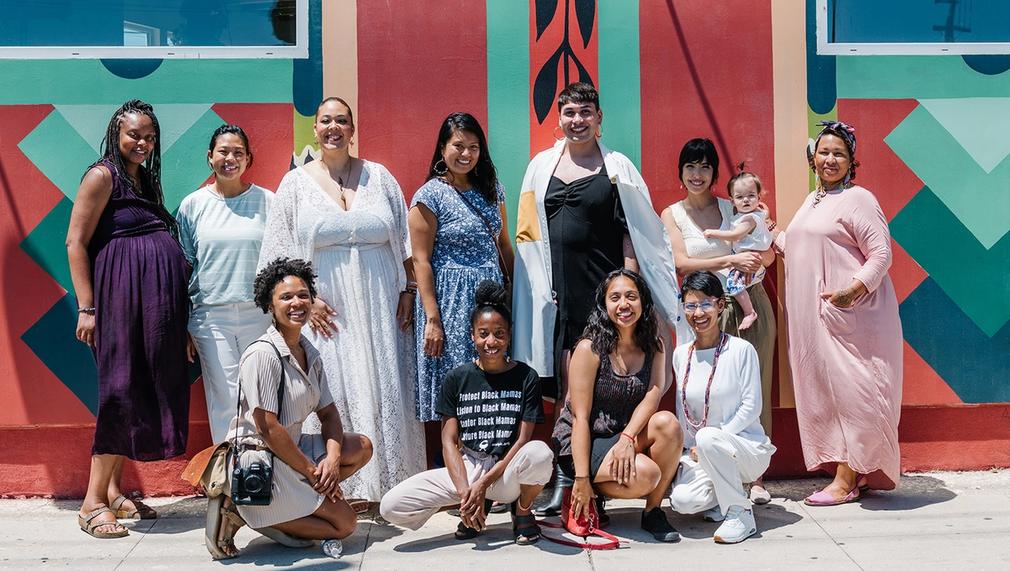Accessible doula care for Los Angeles
This grant will support providing doula trainings to Black Indigenous, People of Color to increase the number of visibility and diverse support available to pregnant, birthing, & postpartum people, their families, and communities. And increase the number of doulas able to provide culturally relevant, skilled, and community centered support to Medi-Cal recipients. All with the goal of improving reproductive health & birth outcomes of people of Color, especially decreasing the overwhelming Black maternal and infant health disparities in LA.

What is the primary issue area that your application will impact?
Health Care Access
In which areas of Los Angeles will you be directly working?
County of Los Angeles
In what stage of innovation is this project, program, or initiative?
Pilot or new project, program, or initiative
What is your understanding of the issue that you are seeking to address?
Black women and infants are dying at disproportionate rates during childbirth and postpartum. Undocumented people and people who do not speak English have difficulties accessing prenatal care. Teen mothers are struggling to find resources and have their parental rights respected in pregnancy, birth, and beyond. We live in one of the richest countries in the world, yet we still have one of the worst maternal health outcomes. Many people are still unaware of doulas and their benefits. However, when pregnant/birthing people work with doulas they report better birthing outcomes, they are less likely to have interventions, and feel more positive about their health experiences. California recognizes the importance of doulas and they are now covered by Medi-Cal. Unfortunately, doula work is still not widely known, and cost of trainings can be inaccessible. Doulas being covered under Medi-Cal will help increase the awareness of the profession and provide economic stability to doulas.
Describe the project, program, or initiative this grant will support to address the issue.
BWOCC is working on a pilot project of providing monthly trainings and hands on support/resources for doulas to register to navigate applying to be doulas under the new Medi-Cal doula reimbursement. This is a new project that we have been at the forefront of but we are still learning this process as the doula medi-cal benefit just rolled out in 2023. We are working to ensure more BIPOC people become doulas so that they can provide inclusive, advocacy-centered, community-based doula support and visibility. This training will help to increase the doula workforce and meet the need that currently cannot be met for the number of Medi-Cal recipients who will be looking for support from doulas, as thousands of people give birth in LA county every year yet currently there are only about 100 doulas that have been approved by medi-cal. This training will also include information and mentorship to become Medi-Cal providers via PAVE and under our collective as a group provider. It will also make the process more accessible as there are costs and barriers to become a Medi-Cal provider. Our collective supports members with administration, billing, and negotiation to eliminate institutional barriers so that doulas are being paid for their work in a timely fashion. We want to ensure doulas are not overburdened with admin and tech issues and are taking on that responsibility for them.
Describe how Los Angeles County will be different if your work is successful.
LA county will be different because our work will contribute to changing the current culture of the birth and postpartum where people are unsupported and burdened. BIPOC birthing people will know help is available to them at no cost from a doula through Medi-Cal. In the US, most birth related deaths are preventable, doulas are one tool to help decrease these senseless tragedies. More people will have access to reproductive care for all pregnancy outcomes including abortion and loss. In the short term, we hope to continue to host monthly Medi-Cal trainings, doula trainings, and have systems in place to support more doulas with medi-cal administrative and reimbursement to ultimately help reduce income inequality and increase income stability for more in Los Angeles county. In the long term, we hope to see a drastic decline in maternal and infant health disparities by training more doulas who represent the different people who make up and make LA county.
What evidence do you have that this project, program, or initiative is or will be successful, and how will you define and measure success?
The Medi-Cal benefit is still in the early stages; but our organization has been involved in advocacy efforts since the beginning. We know our work is successful because we are one of the few approved Medi-Cal group providers. We have one of the largest diverse group of doulas who have been approved and are already serving the population. Our monthly PAVE trainings have had 20+ people register. Attendees report: they are applying, they have been approved, or they feel more confident, and the training helped them decide to become a Medi-Cal doula. We have also partnered with other community based organizations to increase the number of people who have access to navigating medi-cal and we will continue to with this project. We will continue to implement evaluations post trainings and webinars to gauge impact and needs. We plan to track the number of medi-cal clients served and the demographics of the doulas and the clients so that we can determine the need and where we can improve.
Approximately how many people will be impacted by this project, program, or initiative?
Direct Impact: 200
Indirect Impact: 5,000